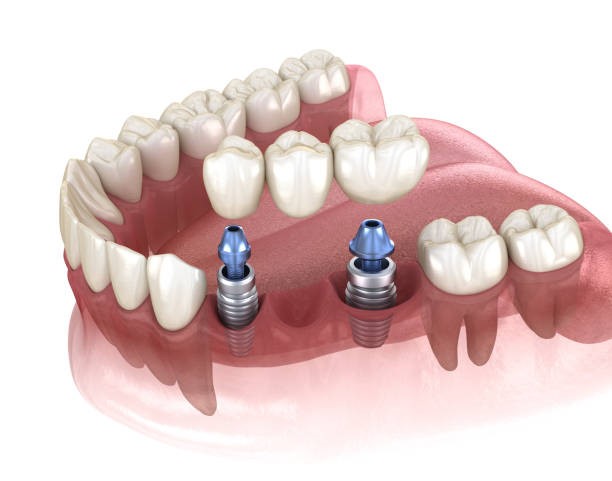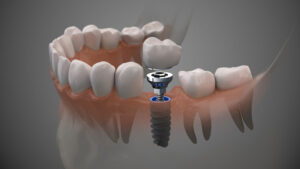Dental implants are the perfect replacement for tooth roots. They offer a strong base for fixed (permanent) or detachable artificial teeth — also known as replacement teeth — that are made to act and look like your natural teeth. Here’s a quick breakdown of the process.
What Will the Recovery Period Be?
The recovery time won’t be the same for all, however, the average recovery time may be anywhere from four weeks to six months in extreme cases. However, after only one to two weeks, the specific region around your implant will heal completely and can functional normally in some specific situations. And the best part? In many cases you will feel no serious pain or soreness whatsoever in that area.
Besides that, there won’t be any bleeding and hardly any swelling or bruising in the region of the implant. So, by this point, you should be able to get back involved in more physically demanding activities such as running & jumping, and typically you can restart your usual diet plan.
However, implants are a complex procedure with lifelong benefits, so for complete healing, you may need a minimum period of six months for the implant to permanently fuse with the jawbone. The implants are made of titanium – which can fuse, typically without problems, with the jawbone. During the recovery time, your doctor will put you on a special diet. In typical cases, you will get the final prosthesis after six months, which would mark the point when you can eat and drink anything you want freely with no restrictions.
Having said the above, every patient and situation is different, and recovery times differ based on prior oral health, overall health, and a host of other factors.
Factors That May Affect Your Recovery Period
Speaking of which, some of the different factors that may influence implant recovery time include the number of dental implants you receive, the capacity of your mouth and the body to heal & recover, the overall condition of your jawbone, and whether you are abiding by the instructions given by your dentist.
Besides the above, the following factors could also play a key role in the length of the recovery period:
1. The number of teeth that have been removed and implanted (single, many, or entire jaw)
2. The health of your bone to support the implants
3. The potential need for bone grafting
4. Individual differences and healing times
5. Type of Surgery Process
The kind of implant surgery you have may also be vital, and can decide the degree of the dental implant procedure pain you may feel, or the actual period for recovery:
A. Simple procedure: If just one tooth has been replaced, your bone is pretty healthy, and you don’t need any grafting, you can rest assured that you won’t feel much pain.
B.Moderate procedure: Many people undergo a moderate implant process, and on average, feel some swelling, bruising, and pain after their procedure.
C.Complex procedure: The more complex the procedure, the longer the period for complete recovery. Those who receive several implants or undergo a difficult process may feel more pain, even if your dentist advises you to have only soft foods for many months after the process.
Other factors: If your doctor is using a precision implant robot, like our Yomi Dental Implant Robot, the recovery process can be simpler and easier due to the accuracy the robot is able to provide.
Summing-Up
Numerous factors can contribute to your recovery period after your dental implant process. For instance, the magnitude of the implant process—whether simple, moderate, or complex—as well as preexisting health conditions. Still, in most cases, the dental recovery period could be anywhere between four weeks and six months. For a smooth dental process and to minimize the pain, allow ONLY experienced and skilled professionals to handle your case.
If you have cracked, missing or chipped teeth—or if you just don’t like the look of your smile—and you would like to discuss your options with a dental implant dentist in Westchester, NY, Call Advanced Dentistry at (914) 594-6824 and schedule your appointment today.





